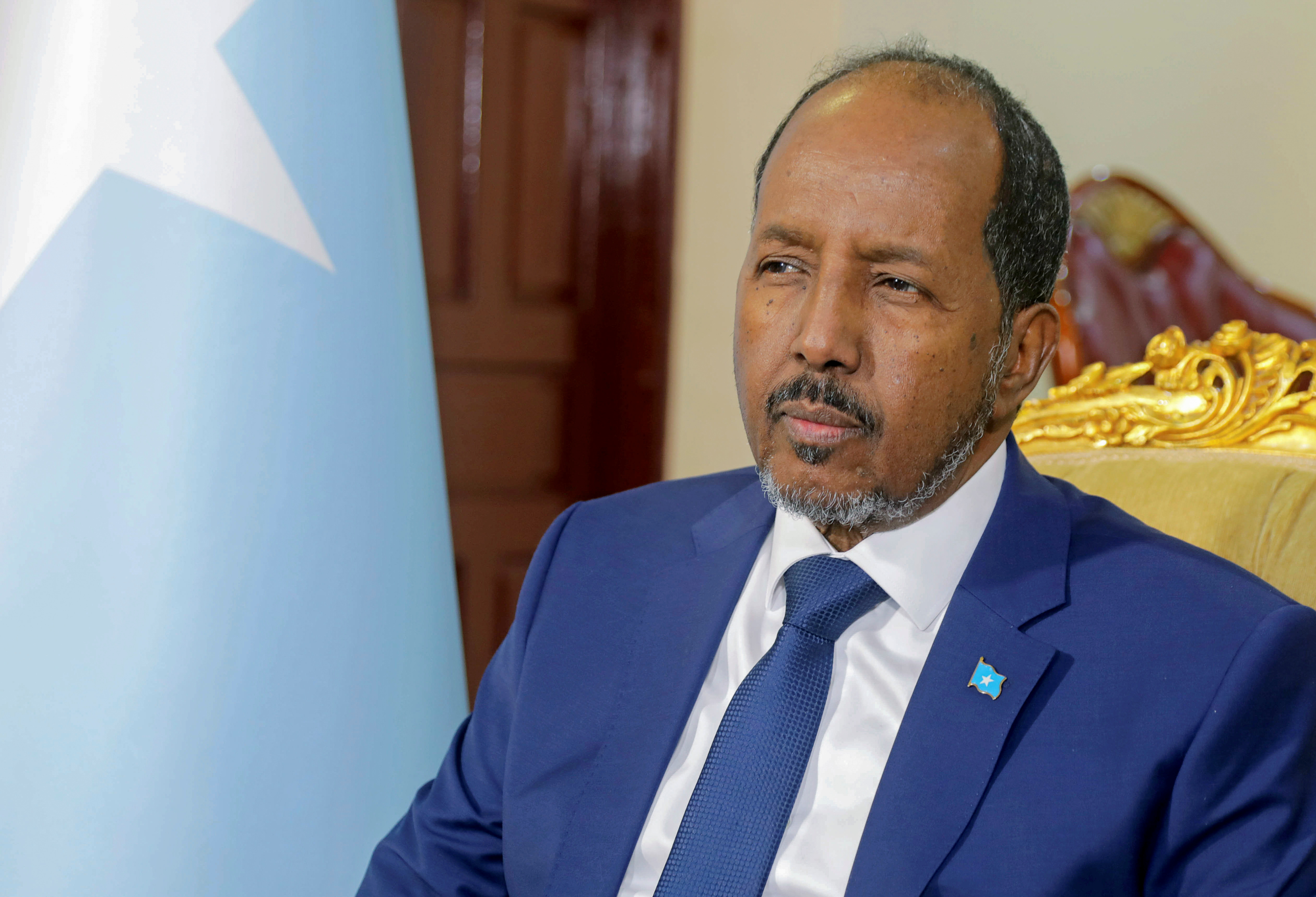
Somali President Hassan Sheikh Mohamud has warned Ethiopia against taking steps to implement a controversial port deal it brokered with the breakaway region of Somaliland.
Under a memorandum of understanding (MOU) signed on January 1, Somaliland leased landlocked Ethiopia 20km (12 miles) of its coastland around the port of Berbera, on the Gulf of Aden, for 50 years for military and commercial purposes.
In an exclusive interview with Al Jazeera on Tuesday, Mohamud said Ethiopian assets would have to cross into Somalia’s territory in order to reach the leased area and warned Addis Ababa against taking such a step.
“So far Ethiopians haven’t come into Somalia. If they will, then that will be a problem at a different level,” Mohamud said.
Egypt, which is involved in a separate dispute with Ethiopia over a major dam on the Blue Nile, has vowed to stand with Mogadishu in the Somaliland dispute. Mohamud said he discussed the recent developments with Egypt’s President Abdel Fattah el-Sisi but that the two sides did not discuss a joint military intervention.
“We haven’t discussed the Egyptian military coming to Somalia and we believe that the problem has not reached [that point] yet,” the Somali president said. “And that’s why we’re warning [Ethiopia]: don’t do it, please.”
Ethiopia is aiming to establish a marine force base in the land leased from Somaliland and obtain a port for maritime exports in the Red Sea and the Suez Canal, which could improve its access to Europe. Currently, Addis Ababa relies mainly on the smaller Djibouti for its port operations for inbound and outbound trade.
Somaliland, a region of Somalia that broke away in 1991 after a bloody war, has welcomed the deal as it looks for international recognition and economic opportunities beyond Mogadishu.
Somalia has been angered by the deal that bypasses its federal government and says it threatens the integrity of its own territory.
“This is a piece of land that belongs to Somalia and [we] will never yield to whatever pressure that comes on it,” Mohamud said.
The Somali head of state accused Ethiopian Prime Minister Abiy Ahmed of having kept him “in the dark” about the deal with Somaliland when they met in Djibouti in late December for “very good” talks on the “unity” of Somalia, just days before the MOU was signed.
Asked whether he thought there could be a win-win solution to the crisis, which has stoked fears of a prolonged diplomatic rift, he said the ball was in Ethiopia’s court.
“The question is not will Ethiopia access the sea. We want Ethiopia to have access to the sea, there is no question about that,” Mohamud said, adding that the federal government was ready to negotiate a deal with Addis Ababa. “But grabbing a piece of land, we are not ready for that.”
“They have to [initiate] a conducive environment to communicate, negotiate and to dialogue,” he added.
Mogadishu has claimed that the deal amounts to a landgrab, while Addis Ababa says the deal is of a commercial nature and is vital to its economic needs.
On January 17, the Arab League said it backed Somalia’s diplomatic efforts to tackle “this perilous situation”. Qatar, Turkey, the United States, the European Union and the Organisation of Islamic Cooperation have also urged Ethiopia to respect Mogadishu’s sovereignty.







